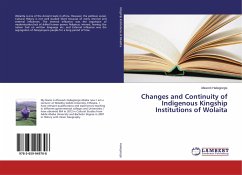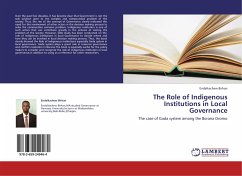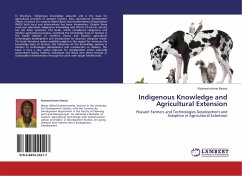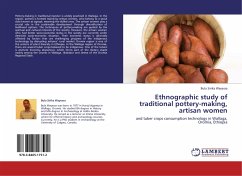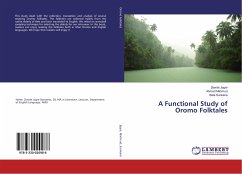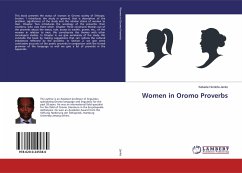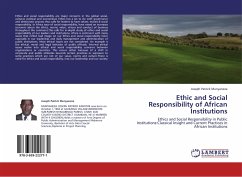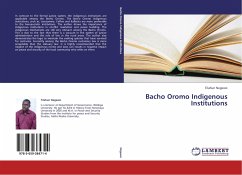
Bacho Oromo Indigenous Institutions
Versandkostenfrei!
Versandfertig in 6-10 Tagen
36,99 €
inkl. MwSt.

PAYBACK Punkte
18 °P sammeln!
In contrast to the formal justice system, the indigenous institutions are applicable among the Bacho Oromo. The Bacho Oromo indigenous institutions, such as, Jaarsumma, Caffee and Kallacha are more preferable to the bureaucratic institutions. The author draws the importance of indigenous institutions in conflict resolution and peace building. The indigenous mechanisms are still very relevant among the Bacho Oromo. This is due to the fact that there is a vacuum in the system of justice administration and the rule of law in the rural areas. The author also demonstrates the logic to maintain the ...
In contrast to the formal justice system, the indigenous institutions are applicable among the Bacho Oromo. The Bacho Oromo indigenous institutions, such as, Jaarsumma, Caffee and Kallacha are more preferable to the bureaucratic institutions. The author draws the importance of indigenous institutions in conflict resolution and peace building. The indigenous mechanisms are still very relevant among the Bacho Oromo. This is due to the fact that there is a vacuum in the system of justice administration and the rule of law in the rural areas. The author also demonstrates the logic to maintain the existing systems that have survived for centuries. Currently among the Bacho Oromo customary law is more acceptable than the statuary law. It is highly recommended that the neglect of the indigenous norms and laws can results in negative impact on peace and security of the local community who relies on them.



